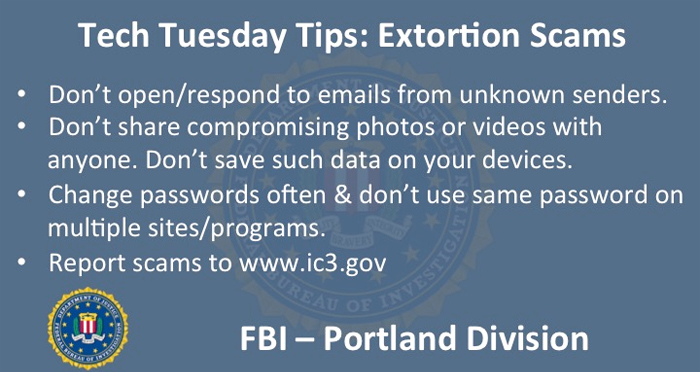Blackmail – it sounds like something you would expect in the TV-drama of the week or a spy movie. But, unfortunately, the FBI’s Internet Crime Complaint Center has been seeing a sharp increase in the number of blackmail scams recently via both e-mail and regular mail.
Not all blackmail scams are the same, but there are some commonalities that can give them away. The extortionist accuses the victim of visiting adult websites, downloading porn, cheating on a spouse, or being involved in some other kind of compromising situation. The scammer will then leave you with an ultimatum – pay a ransom fee of thousands of dollars or do nothing and he will send a video of you in the compromising situation to everyone in your contact list.
It is important to remember that blackmail scams are going to change and adapt to take advantage of current events and high profile data breaches. This will add authenticity to the scammer’s claims. The following list does not include all possible tricks or indicators, however, it does show red flags for which you can watch:
The threat comes from a person unknown to you.
Your personal information is included in the email or letter. This could be information such as your name, username, or password.
There will be a vague explanation of how your private, compromising information was gathered. A phrase such as “I stumbled across your bad deeds” or “I installed malware on your computer” will be included.
The recipient will be given a short window to pay the ransom… usually 48 hours or less. The scammer will usually request that the fee is paid in cryptocurrency, gift cards, or a wire transfer.
What should you do to protect yourself from the blackmail scam?
Never open e-mails attachments from unknown people.
Do frequent security checks on your computer and install security software.
Do not respond to or communicate with unsolicited email senders.
Change your passwords often and do not use the same password for multiples websites.
Never send compromising images of yourself to anyone. Do not store embarrassing images on your phone or computer.
Do not send money. Paying will only facilitate continued criminal activity.





